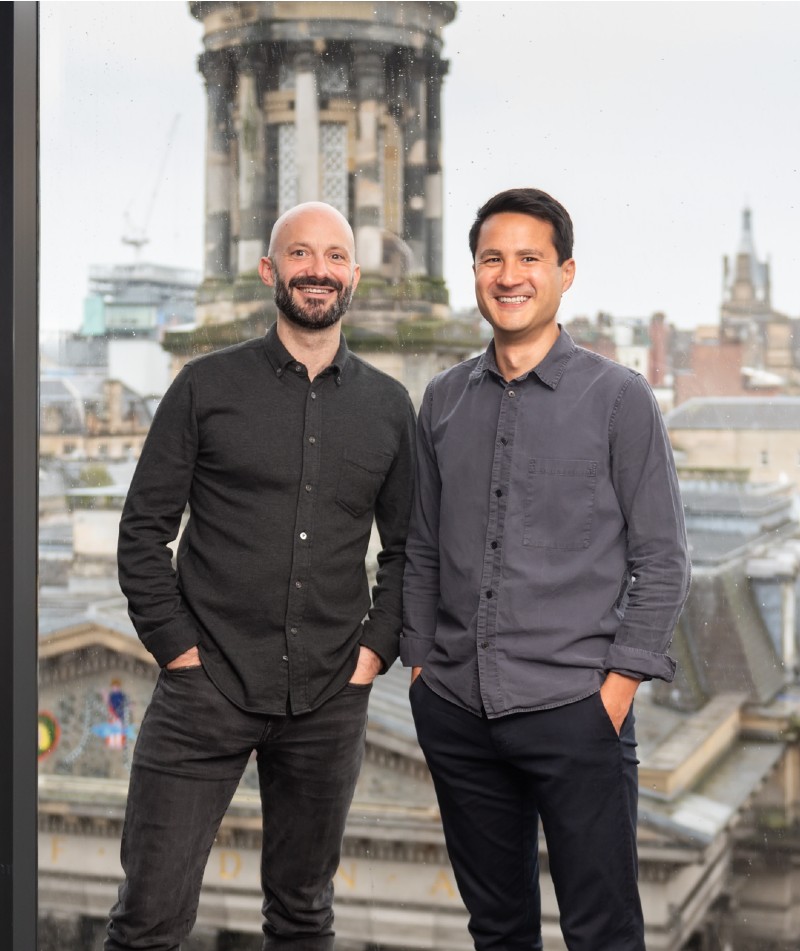It started as a university project. Philip Ross and Martin Izod were both studying product design engineering at the Glasgow School of Art, which is part of the University of Glasgow. The pair designed a door hinge in which you couldn’t trap your fingers. In 2009, they launched a business based on their innovative finger safety product.
Today, that product is now close to being a national standard in primary schools and nurseries – but it’s not the main factor behind the company’s revenues growing at 40 per cent per annum during the Covid pandemic.
Because five years after starting, a mental health hospital started to use the product. And while Phil and Martin began to think that this might be a new market for finger safety products, a friend – somebody who they had studied with – was sectioned.
They went to visit him. Product designers all three, they spent time talking about the poor design of his room; given their business, they looked at the door which allowed light to leak in. So they started to research the market seriously. “We were personally connected to it, which gave us a sense of purpose, and we saw that there was a commercial opportunity too,” says Martin Izod.
They ended up designing a complete door system and, on the way, acquiring a lockset specialist. Today, Safehinge Primera is one of the world’s two leading suppliers of safe door systems for mental health hospitals.
And the business, which had grown slowly and steadily over the past decade, took off. After focusing on the mental health sector, revenues increased from £6m to £12m in the past two years.
Safe door systems reduce the risk of suicide and self-harm: more than half of all suicides in a mental health hospital will use a door or its hardware in some way. “As far as we are aware, we’re the only supplier that has zero suicides associated with our products because we’re so thorough in terms of our design,” says Ross. “Of course, that can change but we’re very proud of our track record to date.”
As product designers, the pair made an early strategic decision to focus on product design, marketing and sales. Safehinge Primera isn’t a manufacturer. “There’s only one portion of our business where we even touch the product,” says Izod. The doorsets – big, bulky, high value, and custom made – are assembled in the UK with components being sourced largely from the UK and Asia Pacific.
The pair encountered the Scaleup Scotland programme at a tipping point; “we had laid all the foundations, had found the right sectors and had the right products,” says Ross. “We were expecting to scale, so the timing was serendipitous.
The programme touched on all the issues that they were facing. Codifying the culture was the first and probably the most impactful thing that came out of it. “We were hiring and firing too much,” says Phil. “People would look good on paper but they wouldn’t work out. The very first session on the Scaleup Scotland programme – on people and culture – proved to be transformative. Our people are now one of our greatest strengths. We have a fantastic team.”
During the period, Martin contracted long Covid. “Through the Scaleup Scotland programme, we had started to put building blocks in place,” says Ross. “If that had happened and we hadn’t gone through that programme, I don’t quite know where we would have been. We would have figured out something but I’m not sure we would have been able to grow at 40% per annum across two years, doubling the business across the two very challenging years of the Covid pandemic.”
“We gained a more entrepreneurial mindset from Scaleup Scotland. We are thinking bigger – and globally. We arrived thinking that we didn’t know the path forwards and what the challenges would be – and we left thinking the opposite. We have a sense of confidence and of knowing the road ahead – and having a network of contacts to help us.”
And there are many opportunities ahead. “There is still significant untapped opportunity in the UK,” says Izod. “There are many bedroom doors that pose significant risk and, until they are all upgraded, they put a huge dependency on the clinical teams to manage that risk.”
Then there are parallel opportunities, such as in the custodial sector.
And then there are international opportunities. The business is beginning to ramp up in the US and Australia – “these are two other markets where our products fit in quite well,” says Ross.
The more research they do, the more growth they see. “We are aiming to grow our UK revenues to £20m over the next three to four years but when you add in our export strategy and a new technology that is on the horizon, we’re aspiring to reach £60m on the horizon. In the space of four years, the business can multiply by five. “
“We are convinced of the scale of the opportunity,” says Izod. “The strength and depth of our purpose will drive us forward. We stand for improving the quality of mental health care and helping people through these difficult points in their lives. We’re collectively on a mission that is bigger than all of us – and that drives us, whatever complexities we face.”

“We are thinking bigger - and globally. We have a sense of confidence and of knowing the road ahead – and having a network of contacts to help us.”
Martin Izod, Co-Founder, CPO
